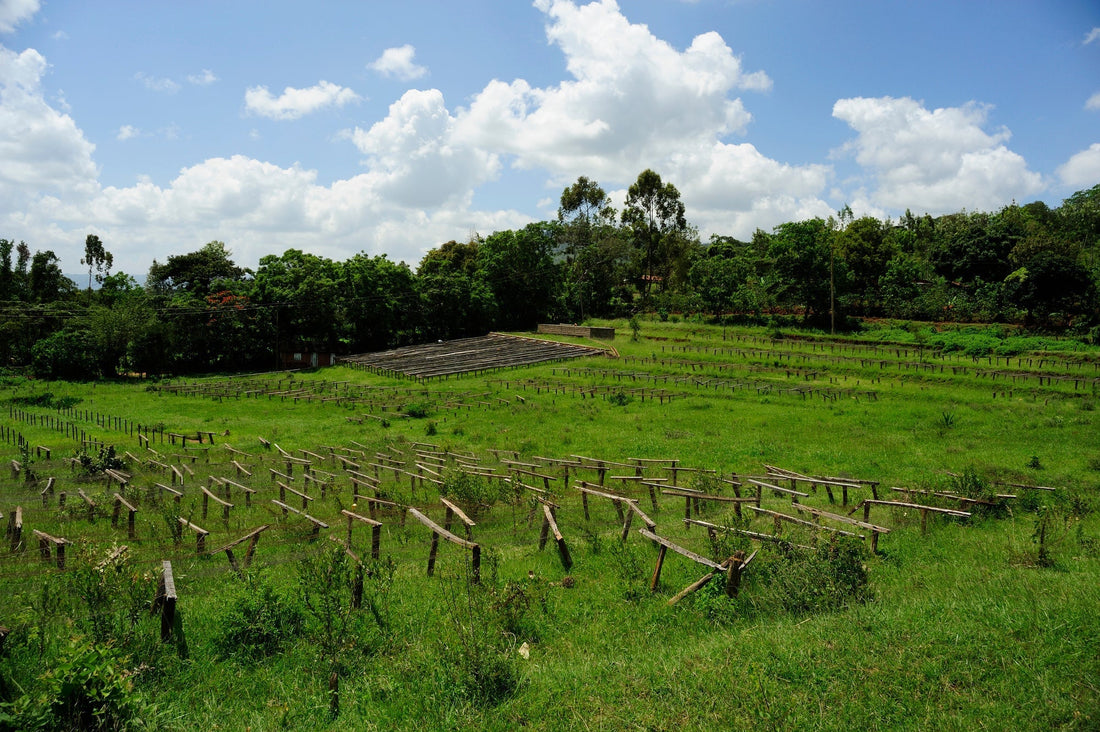Reading material
The unique characteristics of Kenyan coffee beans

Located in the eastern part of the African continent, Kenya is attracting attention from coffee lovers around the world as a producer of high-quality Arabica beans. Kenyan coffee beans are known for their distinctive flavor, bright and vibrant acidity, and juicy fruitiness, and are highly regarded by specialty shops and roasters.
This article focuses on the unique characteristics of Kenyan coffee beans, carefully introducing their growing environment, processing methods, flavor characteristics, extraction tips, and even how to enjoy pairings with coffee. We hope this article will help you gain a deeper understanding of Kenyan beans and help you add a new flavor to your daily cup of coffee.
Kenya's geography and climate create an ideal growing environment

Although Kenya is located directly on the equator, coffee beans are mainly grown in the highlands at an altitude of 1,500 to 2,100 meters. This region, with its large temperature difference between day and night, stable climate and continuous rainfall throughout the year, is extremely suitable for growing coffee.
Volcanic ash soil is widespread, particularly around Mount Kenya and on the slopes of the Aberdare Ranges. The mineral-rich, well-drained soil gives the beans a rich flavor and depth. The dense beans produced by high altitude cultivation mature slowly and are characterized by a flavor with an excellent balance of acidity and sweetness.
In addition to this natural environment, the Kenyan government has a quality control system in place, and producers, mainly small-scale farmers, work tirelessly to carefully cultivate the beans. This commitment to quality has led to the beans being recognized worldwide.
Commitment to refining methods and grading

Kenya traditionally uses the washed (wet) processing method, where the cherries are harvested, the pulp is removed, and the beans with the parchment (inner skin) are soaked in water to ferment, then washed and dried. Washed processing enhances the clean, bright acidity that is unique to Kenyan beans.
Furthermore, Kenyan coffee is strictly classified by grade, with grades such as "AA," "AB," and "PB." This classification is primarily based on bean size, but is also widely recognized as a measure of quality. "AA" in particular is considered to have large beans and excellent flavor balance and body, and is often treated as a luxury product.
Because quality is strictly checked throughout the process from production to shipping, Kenyan coffee is highly valued by roasters as a reliable ingredient.
Taste characteristics and tasting appeal
The appeal of Kenyan coffee lies in its bright, vibrant acidity and fruitiness reminiscent of berries and citrus fruits.Flavors of blackcurrant, raspberry, and grapefruit are often present, resulting in a very juicy and impressive taste.
In addition, Kenyan beans have a solid body but a clean aftertaste, leaving a pleasant aftertaste in the mouth. Lighter roasting brings out the acidity and fruitiness, while medium roasting brings out the balance and mellows the acidity, making them suitable for a variety of tastes.
The flavor also remains strong even when cooled, and in fact, the sweetness may increase as the temperature drops. Enjoying the change in flavor while drinking is one of the ways to enjoy Kenyan beans.
Tips for enjoying Kenyan beans
To get the most out of Kenyan coffee beans, it's important to be a little creative with your extraction method and conditions. Please refer to the following points.
Especially with hand drip coffee, pouring water slowly brings out the unique characteristics of Kenyan beans. It's fun to adjust the extraction time to find the balance that suits you best.
Even when using an Aeropress or French press, if you want to emphasize the fruity flavor, it is best to use a light roast. The flavor does not deteriorate even when making iced coffee, so it is also recommended for summer.
Food pairings that go well with Kenyan beans

The fruity acidity and juiciness of Kenyan beans make them a great match for a wide variety of foods, especially the following:
These foods blend with the acidity and fruitiness of the Kenyan beans, creating a synergistic effect that enhances each other's flavors. This is the moment when coffee becomes more than just a drink; it becomes an experience that is integrated with meals and sweets.
Also, it is often thought that it is not suitable for making cafe au lait with milk, but it can be fun to explore new flavors by combining it with the sweetness of milk. The ideal way is to simply drink it black and enjoy the flavor of the beans themselves.
summary
The greatest appeal of Kenyan coffee beans is their unique flavor, with rich acidity, vibrant fruitiness, and a full body. Due to the high altitude cultivation environment and meticulous refining methods, each and every grain is imbued with its own unique character.
The depth of Kenyan beans lies in the fact that the range of flavors expands depending on the roasting and brewing, allowing drinkers to enjoy a cup that suits their preferences.It can be said that this coffee is suitable for a variety of occasions, from a refreshing morning cup, a stimulating afternoon refreshment, or a quiet presence that enriches reading time.
We encourage you to enjoy the unique flavor of Kenyan coffee at home. Your world of coffee will surely expand.